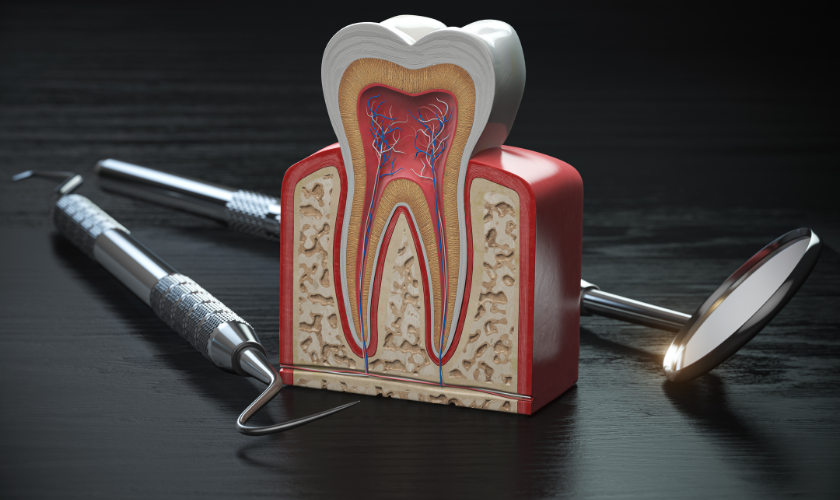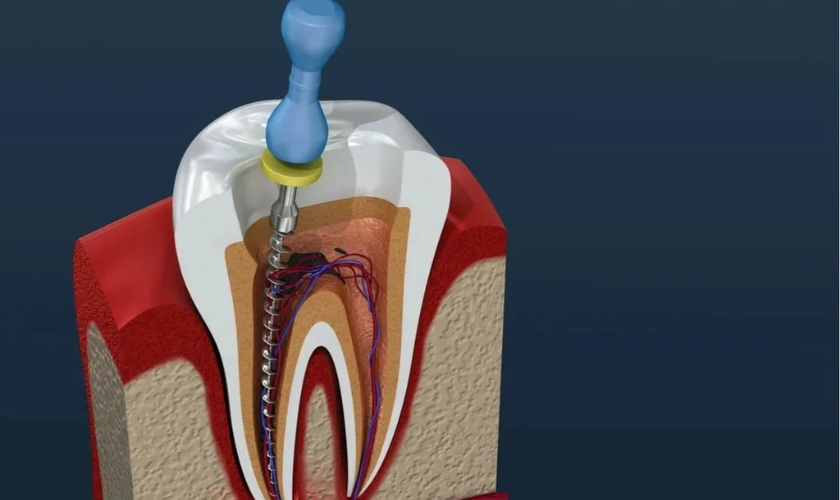
Toothaches are no fun. They can be throbbing, persistent, and disrupt your entire day. If you’ve been told you need a root canal, you might be wondering what it entails and if there are any risks involved. One concern you might have heard about is a possible link between root canals and cancer. Let’s dive into the facts and separate myth from reality.
Root Canals: Saving Teeth, Not Causing Trouble
Root canals are a dental procedure that removes the infected pulp, the soft tissue inside your tooth. This pulp contains nerves, blood vessels, and connective tissue. When bacteria invade the pulp due to deep decay, cracks, or gum disease, it becomes inflamed and infected. This is what causes the pain associated with a toothache.
The root canal procedure itself is designed to eliminate the infection and preserve the tooth. During the procedure, the dentist numbs the area, accesses the pulp chamber, removes the infected tissue, cleans and disinfects the canals (tiny passageways within the root), fills the space with a special material, and seals the tooth with a crown.
Root Canals and Cancer: Debunking the Myth
The idea that root canals can cause cancer is a long-standing misconception. It originated in the early 1900s from the focal infection theory, which suggested that infections in one part of the body could spread and cause disease elsewhere. While chronic infections can be problematic for overall health, there’s no scientific evidence to support the claim that root canals specifically contribute to cancer development.
Major dental associations, including the American Association of Endodontists (specialists in root canal treatment), strongly reject this myth. Extensive research has failed to find any connection between root canals and an increased risk of cancer.
Here’s a breakdown of why the myth doesn’t hold water:
- Lack of Modern Evidence: The focal infection theory was based on observations made before the advent of modern antibiotics and sterile dental practices. Today’s dentistry prioritizes hygiene and infection control, minimizing the risk of infections spreading from the root canal site.
- Flawed Research: The initial studies proposing a link were conducted under poorly controlled conditions and have yet to be replicated by subsequent research using more rigorous methods.
So you can breathe a sigh of relief. There’s no reason to believe that getting a root canal puts you at any higher risk of developing cancer.
Can Root Canals Cause Other Health Problems?
While not linked to cancer, there are a few potential temporary side effects associated with root canals:
- Discomfort: The area around the treated tooth might be sensitive for a few days after the procedure. Over-the-counter pain relievers can usually manage this discomfort effectively.
- Swelling: Mild swelling in the gums or face can occur but typically subsides within a day or two.
- Infection: Though uncommon, there’s a slight chance of infection following the procedure. If you experience prolonged pain, swelling, or fever after your root canal, contact your dentist right away.
Remember, a root canal is performed to address an existing infection and prevent further complications. Leaving an infected tooth untreated can lead to more serious problems, including bone loss, abscesses (pus-filled pockets), and even tooth loss.
Root Canals and Overall Health: Potential Benefits
In fact, there’s growing evidence that good oral health, achieved through practices like regular dental checkups and procedures like root canals when necessary, can contribute to overall well-being. Here’s how:
- Reduced Inflammation: Chronic dental infections can contribute to systemic inflammation throughout the body. Root canals help eliminate these sources of inflammation, potentially reducing the risk of other health problems.
- Improved Chewing Ability: A healthy, functional tooth allows you to chew food properly. This aids in digestion and nutrient absorption, contributing to better overall health.
- Maintaining a Healthy Smile: Saving your natural teeth with a root canal helps maintain a complete and healthy smile, which can boost your confidence and self-esteem.
When to See a York Dentist About a Root Canal
If you’re experiencing persistent tooth pain, sensitivity to hot or cold, or swelling around your tooth, it’s important to see a dentist promptly. Early diagnosis and treatment of infected pulp can help prevent the need for a root canal. However, if the infection has progressed, a root canal becomes the best course of action to save the tooth and restore your oral health.
Remember, a root canal is a safe and effective procedure that can alleviate pain, preserve your natural tooth, and contribute to your overall well-being. If you have any concerns or questions about root canals, don’t hesitate to discuss them with your York dentist. They’ll be happy to provide personalized advice based on your specific situation.





